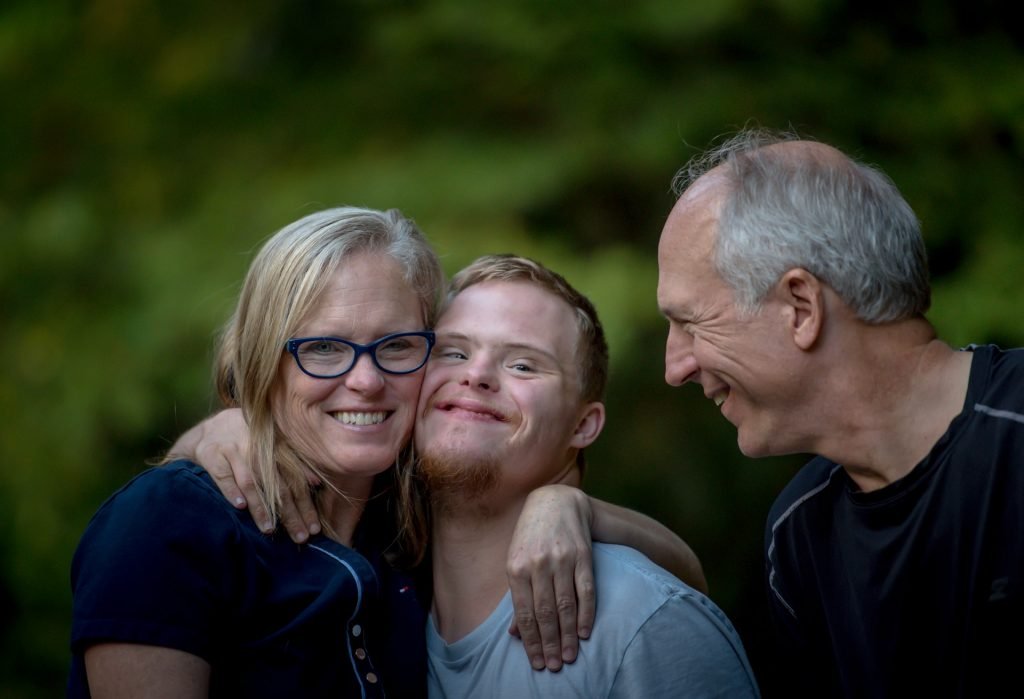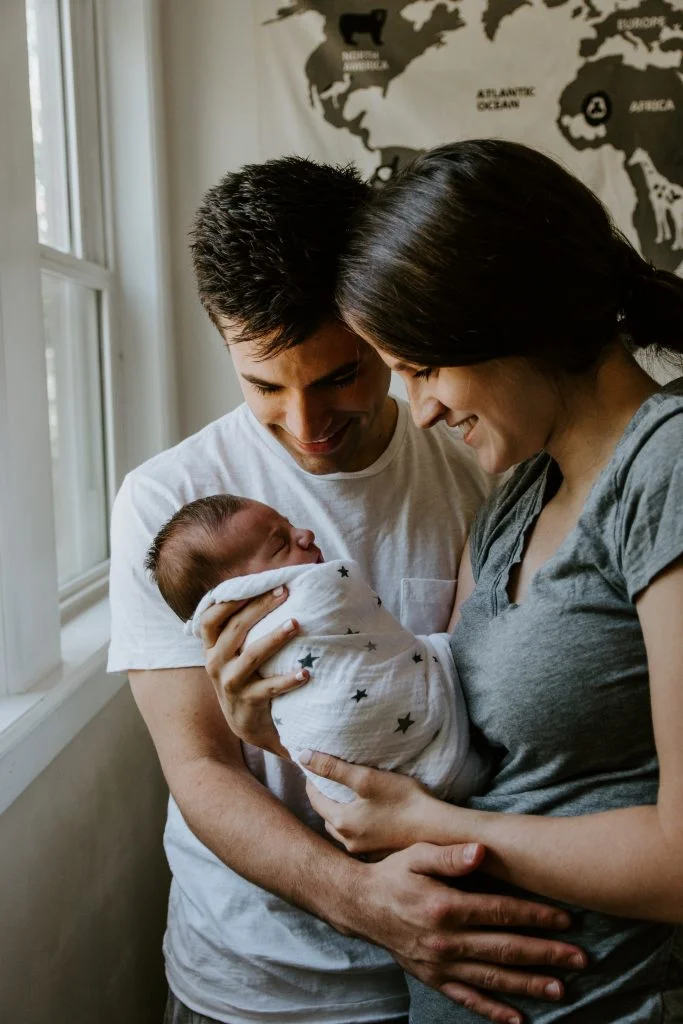Adoption rates in the US are at no more than 2%, but around a third of families have considered adopting. According to the US Census, one out of 25 US families with children has an adopted child. Approximately 4 million babies are born in the United States every year and around 140,000 children are adopted by American families. About 62% of babies are placed for adoption with their adoptive families during the first month of their birth. If you are considering adopting, you came to the right place.
Here at Courage Community Foster Care, we will help you with the adoption process. If you want to know more information about the challenges adoptive families may experience, we will be discussing them here in this article.
The adoption process is not the same for everyone. Adoptive children have different experiences which help shape and mold their personality and well-being. Adoption comes with both rewards and challenges that you and your child may face during your lifelong journey. The adoption process is aimed to provide a positive experience. However, there are possible challenges that can occur along the way. In this article, we will be sharing the common challenges that adoptive families can experience and we will also discuss the ways how the parents can help their children to cope with it.
The adoption procedure
Adoption processes vary from one family to another. It can be short and fast for one family, while lengthy and challenging to some. There are plenty of requirements that must be met, such as a medical clearance for parents, background checks, including social status, and most importantly, never-ending paperwork that needs to be accomplished. If you are going for international adoption, it will cost more money than a local adoption as well as require overseas travel.
The adoption process may vary from one state to another, but the main steps that include the screening of prospective parents remain the same. The process can be tiresome, but you should know that a positive outcome is going to come right out of it, which is when you will soon meet your child. A lot of adoptive parents that are going through the adoption journey have experienced comfort and relief through adoption communities and support groups. You can reach out to your adoption agency and ask for help from your friends that have undergone the adoption process so that they can help you face the challenges that lay ahead of you.
Sorrow, detachment, and loss
Adoptive children may experience sorrow, detachment, and loss associated with their adoption. They can experience sadness because of the loss of their birth family. This can be more evident among older children, especially if they have gone through a lot of foster families, friends, and schools before they were finally adopted.
It is normal for adoptive children to experience different emotions corresponding with the grief process, like anger, anxiety, betrayal, denial, and fear. They can experience feelings of loss and sorrow and may think that no one understands how they feel or why they are grieving. These issues can occur later in life when they experience an emotional or trivial event such as giving birth, weddings, or the death of a loved one.
There can be fears of abandonment and rejection, behavioral problems, and other issues that can also affect the blossoming of friendships and relationships. Grief can also be associated with guilt when the child feels that they are at fault because of what happened to their birth family. Grief and loss can be experienced and processed differently by everyone, so you must be ready to guide and support your adoptive child. You can allow them to process the situation at their own pace and you must be ready to respect their progress. They may need more support as these difficult emotions can be hard to understand most of the time.
Recognizing your adoptive child’s birth family and culture
Adoptive parents must acknowledge their adoptive child’s birth family and culture. However, it can sometimes be difficult for some adoptive parents to accept this, and feelings of insecurity, jealousy, and anger can arise. It’s important to put these feelings behind and process them properly for the sake of your child. Adoptive children are often curious about their birth parents and siblings, as well as their culture, especially if they come from a multicultural family. It is normal for your adoptive child to ask questions about their birth family, so you must be ready to share the information appropriately.
Be honest and have open communication with your adoptive child; this will help build trust in your relationship. Never withhold any information concerning their birth family. If you have adopted internationally, you must be prepared to accommodate their interests and answer their questions about their birth country and culture. You must respect and understand their roots and you must be willing to help them learn about their culture so that you can connect and develop a trusting relationship with them.
Self-esteem and individuality
Adoption can cause a lot of challenges for adoptive children when they become adolescents. If they have limited information about their culture and birth families, they may experience hardships in their identity formation process. Identity development problems can occur as adoptive children have a hard time finding their place in their adoptive family.
Some adoptive children may find themselves as outcasts, rejected, or different from their adoptive family, so they may have a hard time fitting in and may become insecure with their identities, especially when they compare themselves to their classmates and friends. Struggles can also happen if the child has a different race from their adoptive family. You must be willing to help them and provide them with the support that they need. They will benefit from counseling and therapy services to address those important concerns.
Dealing with unbecoming questions
People love to meddle with family matters and love to share their unwarranted opinions. Some people may try to question your family, especially if you have an adoptive child of a different race or culture. You can teach your adoptive child to avoid those questions. You can also respond with “I’m sorry, but that’s a personal question.” Your family does not owe anyone answers to inappropriate and invasive questions that will make you and your child uncomfortable.
Attachment issues and psychological problems
Older adoptive children who may have experienced trauma in their earlier life like abuse, neglect, foster care placements, etc. may also experience challenges in their social, emotional, and developmental aspects of life. They are prone to developing attention deficit hyperactivity disorder, substance and alcohol addictions, learning disabilities, anxiety, and depression.
Older adoptive children struggle with building relationships with their adoptive parents, friends, and classmates, especially if they have experienced trauma in their earlier life. Children who have experienced trauma can benefit from counseling, support, and therapy services. As an adoptive parent, you will benefit from undergoing additional training and support to know how to deal with these problems in case it happens with their adoptive children.
Feeling detached from the family
Adoptive children may struggle with accepting the fact that they are a part of your family. It can be traced to the issues that they have experienced when they were younger where they experienced abuse, trauma, and abandonment. You must let your child know that they are an important member of the family. Be patient in dealing with any problems that may arise during this time. You must let them feel that they have a supportive and nurturing family that loves and cares for them no matter what happens.
Dealing with post-adoption problems
Adoption-related issues can occur any time after you have adopted your child. You must help and support your child so that they can overcome any problems that may arise. Go ahead and educate yourself about common post-adoption issues and seek out help and support whenever necessary. You can also consider the following tips below.
Open communication
You must communicate openly and truthfully with your child. If you have any questions for them, you must not force them to talk if they are not ready. You can make adoption a common and comfortable topic of conversation in your home and let your child know that you are always open to having a conversation with them. In addition to this, you must convey to them that you are willing to wait until they are ready. You must be physically and emotionally available to listen and discuss everything with your child.
Take the time to learn about your child’s background and their pre-adoption story. If it is allowed, you can also maintain a relationship with your child’s birth parents. If this is something that you’re interested in, you will need to coordinate with your adoption agency regarding this so you can provide answers to your child’s question with regards to their identity. This can also help ease their feelings of loss and grief. You can also ask your adoption agency in case you have further questions about your child’s birth family.
Provide a loving and supportive home
You must be consistent with your child. The home must be predictable, which can be done by establishing routines for your child and help them adjust better. Help them understand that your home is their home and that they know what to expect, especially for children who have faced trauma with their birth family. You can teach them to make age-appropriate decisions so that they can become more confident and develop a sense of control in their life.
Be patient and flexible while your child is adjusting to their new environment. You can ask for help from the adoption agency and support groups. In addition to this, look into consulting a therapist or behavioral specialist so that you will know how to face post-adoption issues that may arise later on. You can seek help for trauma counseling so that you can provide and respond to your child’s needs accordingly. Mental health support groups like adoption groups, camps, and organizations are also available to help you with the adoption process.
Adoption is a lifetime process that may bring challenges to your family along the way. Be patient and learn proper communication skills and consult post-adoption support groups so you can manage the adoption challenges that you and your child may experience. If you are based in Colorado and you are interested in adopting a child, make sure to check out Courage Community Foster Care. If you have questions or inquiries you can contact us by filling up this contact form here.
If you are planning to adopt and you are located in Colorado, USA, Courage Community Foster Care can help you with the process. The adoption process is not easy so as a licensed public adoption agency, Courage Community Foster Care can assist you from the beginning until you get a placement. If you have any questions or concerns about an adoption, please contact us. You reach out by calling 719-321-4319 and you can send an email at kerrih@fostercourage.com. You can also reach us through our PO Box address which is P.O. Box 262 Cascade, CO 80809.






Recent Comments